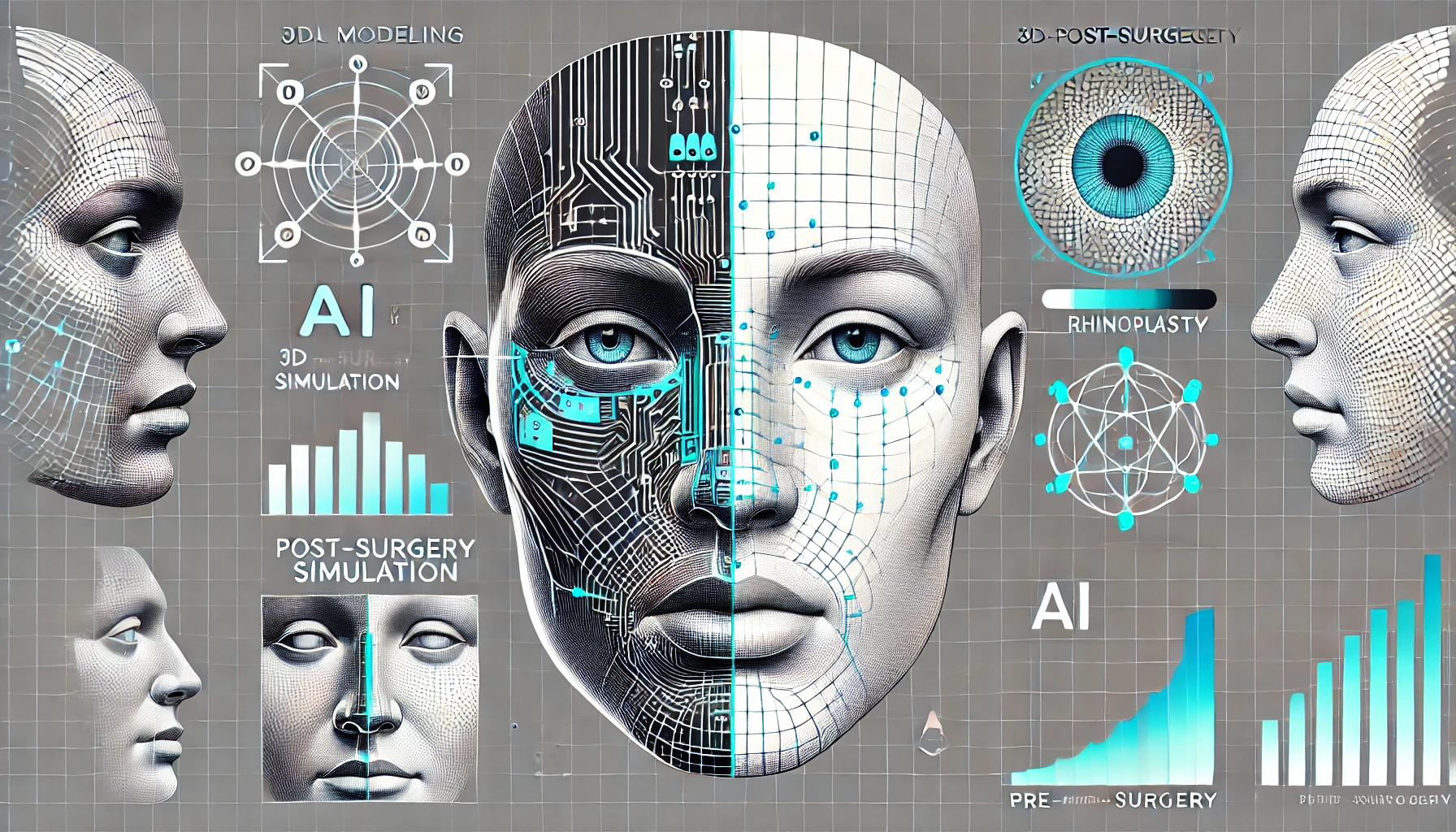AI & Rhinoplasty
Artificial Intelligence and Rhinoplasty: Innovations in Surgical Processes
Introduction: How is AI Integrated into Rhinoplasty?
Artificial intelligence (AI) is revolutionizing the field of medical science, particularly in cosmetic surgery. Rhinoplasty, commonly known as nose surgery, is one of the areas most impacted by these technological advancements. From pre-surgical planning to post-surgical evaluations, AI is now playing a critical role in enhancing the precision and accuracy of rhinoplasty procedures. In this article, we’ll explore how AI is being used in rhinoplasty and the potential benefits it offers.
AI Models: Convolutional Neural Networks (CNNs) and Aesthetic Evaluation
In the field of aesthetic surgery, AI has emerged as a powerful tool, especially in the form of convolutional neural networks (CNNs) and machine learning models. These models are designed to classify nasal aesthetics and predict surgical outcomes. Research indicates that CNNs have achieved impressive accuracy rates—ranging between 82% to 88%—when compared to expert evaluations. These figures represent significant progress in predicting aesthetic outcomes with greater precision.
Objective Evaluation of Rhinoplasty Outcomes
One of the biggest contributions of AI is its ability to objectively evaluate surgical outcomes. Machine learning algorithms can match visual aesthetic metrics with quantitative data, offering more accurate and unbiased assessments. This makes the results more transparent for both surgeons and patients.
In addition, AI-based facial recognition software is being used to assess the changes in appearance after rhinoplasty. Studies have shown that these tools detect that patients generally appear younger and more attractive after surgery. This provides objective data to complement surgeons’ subjective assessments.
Surgical Outcome Simulations with AI
AI not only aids in evaluating aesthetic outcomes but also plays a vital role in simulating surgical results for patients before the procedure. Studies show that AI can closely mimic a surgeon’s criteria for aesthetic outcomes. These simulations allow patients to visualize their potential post-surgery appearance. However, despite the advanced capabilities of AI, many surgeons still prefer manual simulations.
AI’s Other Applications in Rhinology
Beyond aesthetics, rhinoplasty is often performed to address functional issues as well. AI’s applications in rhinology extend beyond cosmetic purposes to include radiological diagnostics, phenotyping, and surgical planning. AI algorithms have demonstrated high levels of accuracy in diagnosing complex cases and improving the precision of surgical planning.
One notable development is Rhino, a system that optimizes deep learning models for rhinoplasty, allowing for more efficient surgical processes. This saves both time and cost, making rhinoplasty procedures more accessible and effective.
Challenges and the Future Potential of AI in Rhinoplasty
While AI integration offers tremendous opportunities for rhinoplasty and surgery in general, it also presents certain challenges. One of the major issues is ensuring data integrity. AI algorithms must be continuously validated and fed with reliable data to maintain accuracy and effectiveness. Otherwise, the reliability of the results may be compromised.
Another challenge is the lack of accessible code sources for wider use by surgeons and researchers. Additionally, comprehensive studies are needed to interpret the data produced by AI tools effectively.
AI Tools Like ChatGPT in Patient Information Processes
AI-powered tools, like ChatGPT, have recently started being used to assist in patient information processes. These tools can provide patients with consistent and informative responses to their rhinoplasty-related questions. However, they are still limited in offering personalized medical advice. While they are useful for general information, they may not be adequate for addressing specific individual cases.
The Future of AI in Rhinoplasty
AI holds tremendous potential to enhance the precision and objectivity of rhinoplasty procedures. However, realizing the full benefits of this technology will require further research and development. In the future, we can expect AI to be used more widely in surgical applications, thanks to multidisciplinary collaborations.
Frequently Asked Questions (FAQs)
- How is AI used in rhinoplasty surgery?
- AI is used in various stages of rhinoplasty, including pre-surgery planning and post-surgery evaluations. It plays a significant role in predicting aesthetic outcomes and creating surgical simulations.
- How accurate are AI-based predictions for rhinoplasty outcomes?
- Research indicates that AI models can achieve accuracy rates between 82% and 88%, making them highly effective for predicting surgical outcomes.
- How does AI help in evaluating facial aesthetics post-rhinoplasty?
- AI-based facial recognition software can objectively assess changes in appearance, showing that patients typically appear younger and more attractive after surgery.
- Why is AI integration into clinical practice challenging?
- The main challenges include ensuring data integrity, the need for continuous algorithm validation, and the limited availability of accessible AI tools for medical professionals.
Conclusion
Artificial intelligence is transforming the field of rhinoplasty surgery. By improving the precision and objectivity of both aesthetic and functional assessments, AI helps surgeons achieve better results. However, further research and development are necessary to realize AI’s full potential in this field. With AI, surgeons can reduce their workload, while patients benefit from more accurate and satisfactory outcomes.
Choosing an experienced and reliable surgeon for rhinoplasty increases the success and safety of the surgery. Learning about your surgeon’s past successes, patient reviews, and portfolio can help you make the right choice. Additionally, maintaining open communication with your surgeon during the pre- and post-surgery processes to clarify your expectations and possible outcomes is important. In this respect, Associate Professor Dr. Sema Koç, with her 22 years of experience, successfully performs her surgeries. You can access her previous surgeries on her Instagram and website.
For more information about nose aesthetics and to schedule a consultation with Assoc. Prof. Dr. Sema Koç, you can contact our clinic.
Other Languages
Author





